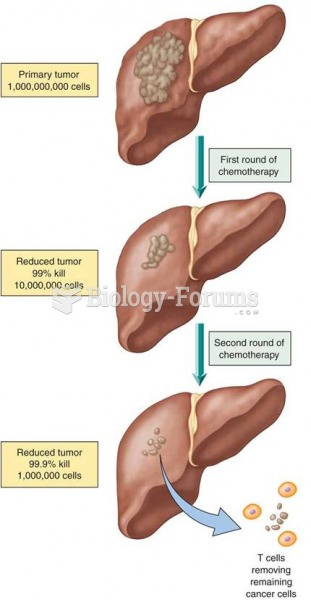|
|
|
There are 60,000 miles of blood vessels in every adult human.
A cataract is a clouding of the eyes' natural lens. As we age, some clouding of the lens may occur. The first sign of a cataract is usually blurry vision. Although glasses and other visual aids may at first help a person with cataracts, surgery may become inevitable. Cataract surgery is very successful in restoring vision, and it is the most frequently performed surgery in the United States.
Although puberty usually occurs in the early teenage years, the world's youngest parents were two Chinese children who had their first baby when they were 8 and 9 years of age.
The Romans did not use numerals to indicate fractions but instead used words to indicate parts of a whole.
Human kidneys will clean about 1 million gallons of blood in an average lifetime.







